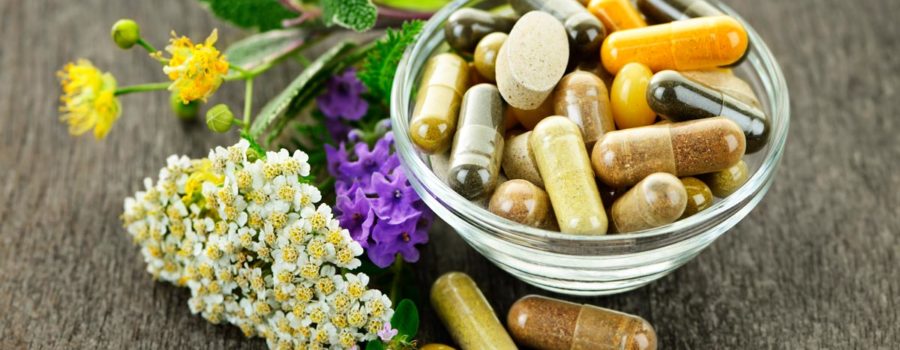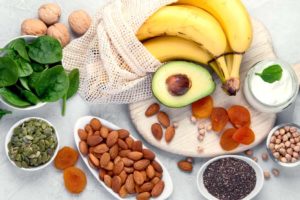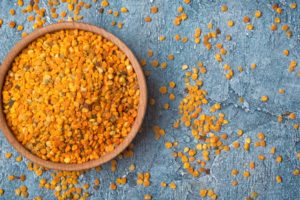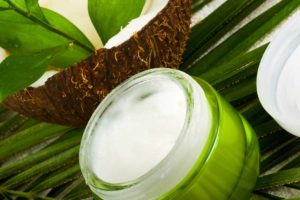1. Cannabidiol (CBD) Oil
Cannabidiol (CBD) oil is a cannabinoid component found in the cannabis plant, containing many amazing, therapeutic health benefits. One reason many people find CBD so versatile is that the components that make it up do not contain THC and are non-psychoactive. Therefore it can be used by those individuals who do not want the effects of mind-altering cannabinoids.
CBD is well-known for helping with a variety of brain-related conditions. However, its benefits are far-reaching for a multitude of issues. CBD oil can help with a variety of different conditions including anxiety, depression, seizure disorders, insomnia, PTSD, injuries, anti-aging, and pain, just to name a few.
CBD Oil acts through a variety of different pathways in the brain, stimulating the endocannabinoid system through various receptor sites. One of the receptor sites is the serotonin receptor, which is why it is well known for helping with anxiety and other mental health-related brain conditions.
2. Probiotics
According to NIH: “Probiotics are live microorganisms that are intended to have health benefits. Products sold as probiotics include foods (such as yogurt), dietary supplements, and products that aren’t used orally, such as skin creams.”
Although many people see most germs and bacteria as “bad” probiotics are actually considered “good” bacteria. Often times when we struggle with digestive health issues, it can be due to having a poor balance of good and bad bacteria. This is referred to as dysbiosis. Probiotics are often utilized to help balance out the good and bad bacteria, in order to improve digestion.
Probiotics are commonly used for a variety of health conditions, making them a versatile supplement. Some of these conditions include: digestive health issues, allergies, autoimmune conditions, skin conditions, viruses, and even mental health issues such as anxiety and depression.
There are millions of different strains of probiotics each possessing different benefits. Probiotics are very common now and can be found in different formulations including powders, capsules, tablets, creams, skin treatments, and even in fermented foods.
3. Turmeric
Turmeric is a plant with a long history of use dating back thousands of years. It has been known as one of the most powerful nutritional supplements, and modern medicine is beginning to recognize the potency and properties of this amazing supplement. Almost all turmeric crops are produced and consumed in India. Turmeric contains an amazing bioactive compound known as curcumin. This compound holds some powerful and amazing health benefits.
Turmeric is commonly used in foods, cosmetics, and medicine. It is a widely used spice in South Asian and Middle Eastern cooking. Turmeric is one of the most popular anti-inflammatory Ayurvedic medicines and has been documented to work for many different conditions including liver disorders, anorexia, rheumatoid arthritis, diabetes, heart health, viruses, digestive issues, and blood circulation issues.
In both Ayurvedic and traditional Chinese medicine, turmeric is used as a bitter digestive Unani practitioners also use turmeric to expel phlegm or kapha, as well as to open blood vessels in order to improve blood circulation. Turmeric is often used in Indian rice and bean dishes, in order to help facilitate digestion and reduce gas. Turmeric helps to thin bile, which helps the body digest and assimilate fatty acids.
4. Green Powders
Concentrated greens and green superfood drinks are all the help in the wellness world and for a good reason! Concentrated greens carry a big bang for the buck! Typically these green powders contain very high amounts of phytonutrients and antioxidants. Greens often come in a powder form and can be mixed into drinks and smoothies in order to incorporate more healthy greens into the diet.
Greens are often taken as a tonic to help cleanse the blood (chlorophyll) and help with digestion (due to the high amounts of enzymes typically found in greens) and assimilation of food. Greens also help with increasing our energy levels by feeding nutrients to our mitochondria, which is where we create energy. Greens contain vitamin C which can also boost our immune health. Many people also swear by taking greens to maintain youthfulness, beauty, and skin health as well.
5. L-Glutamine
Damage to the gastrointestinal (GI) tract can lead to what is often referred to as “leaky gut syndrome.” The tight junctions in the gut become loose or permeable. This is typically due to poor nutrition (large foreign proteins such as casein in dairy), stress, and alcohol use to name a few. Once these tight junctions become separated, foreign particles can ‘leak’ into the bloodstream. This increases inflammation and can lead to inflammatory health conditions such as autoimmunity. L-glutamine is an amino acid that is known for healing and sealing the lining of the intestines. The intestines utilize about 30% of total glutamine in the body, indicating that it is a key nutrient for intestinal health.
L-glutamine actually increases gut permeability. This allows for nutrients from food to be absorbed and keeps foreign proteins and toxins out by healing the lining of the gut. It also can help significantly with irritable bowel issues. L-glutamine typically comes in a powder form and can be dissolved in liquids for consumption.






Leave a Reply
Your email is safe with us.